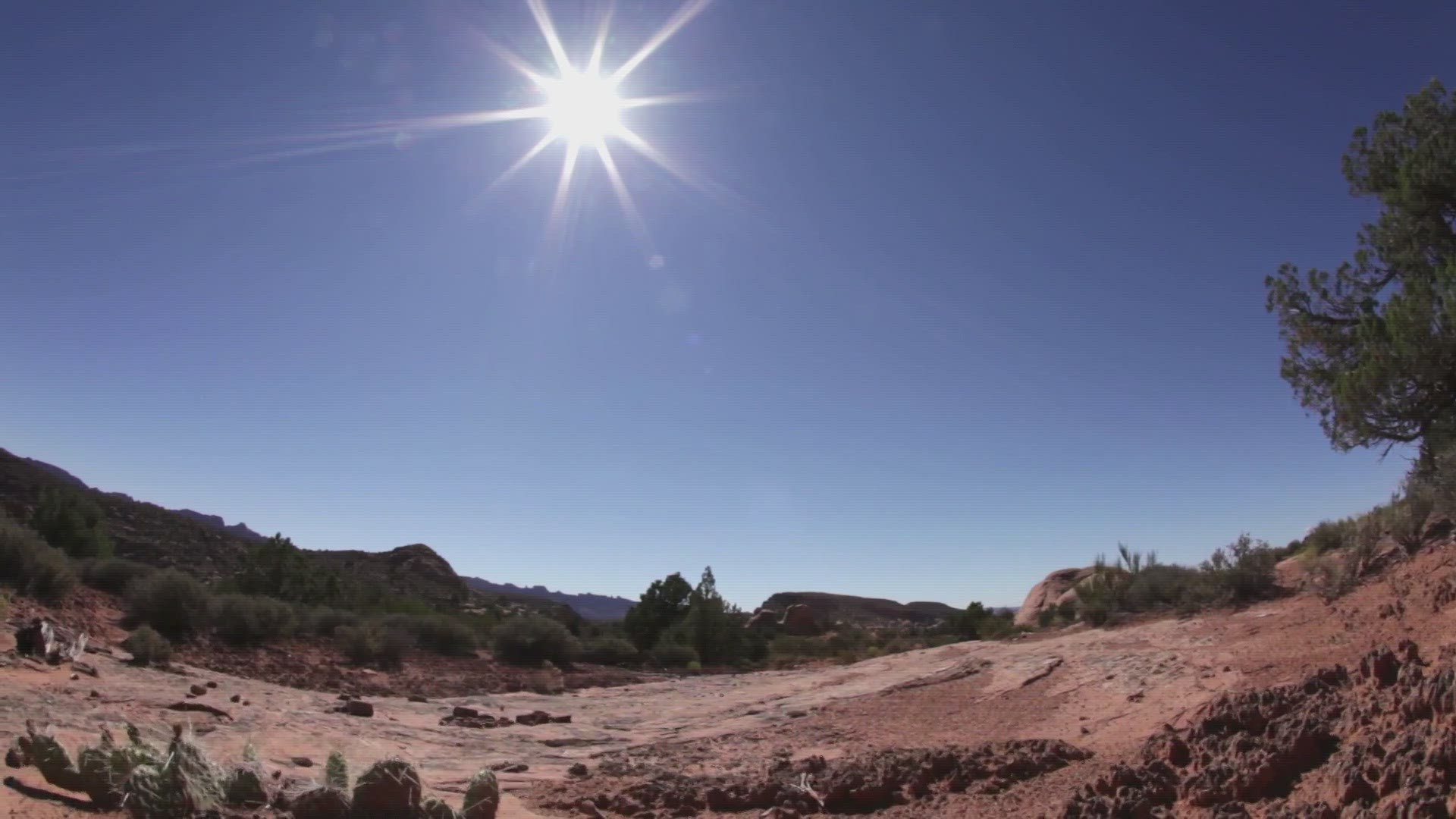PHOENIX — Arizona is known for many things like hiking, beautiful scenery, wildlife and history.
However, during the summer months, it's known for one thing: heat.
"It's very serious," said Arizona Fire and Medical Authority Division Chief Ashley Losch. "It will kill you if you aren't paying attention to the signs."
Last year, Arizona saw the highest number of heat-related deaths in some time, so as temperatures start to rise, so does concern for safety.
"It seems like this week we're seeing more heat-related illness," said Banner Health's Emergency Physician Daniel Montgomery. "We're definitely seeing a lot of elderly getting overheated and young people as well. This week has been a spike."
Heat-related emergencies can creep up quickly, so experts say it can be life-saving to know when there's a problem.
"We get used to being outside and enjoying the nice weather and it hits you out of nowhere," Montgomery said.
"Complacency is a problem when it comes to heat," Losch said.
Heat exhaustion can cause dizziness, excessive sweating, nausea/vomiting and/or cool and clammy, pale skin.
"And that's time to get inside, sit down, drink some water," Losch said. "Don't chug the water though, take small sips."
Heat stroke is much more serious. Signs include severe headache, confusion and a change in behavior. The body also stops sweating and will feel hot to the touch (heat stroke can present itself when the body reaches at least 103 degrees). If the person is in an altered state, don't give them water, instead call 911 to get help on the way.
"Get them inside, cooled down and we mean active cooling," Losch said. "So, ice packs in the groin, armpits and something behind the neck. Maybe even a cool compress on the head."
"Every minute counts," Montgomery said. "Every minute your body is above that critical temperature it's causing damage. Damage to your kidneys, damage to your liver, your brain."
Triple-digit heat is on the horizon, which is why experts encourage people to pay attention, hydrate and look after each other.
"I know we see a 10% increase in the summer calls for heat-related injury and illness and that's avoidable," Losch said. "Get that water, pay attention and let's take care of one another."
Staying hydrated is one of the most important things someone can do during the scorching temperatures. How much to drink depends on the person, so experts say a good rule of thumb is to drink when thirsty.
Even better is to drink constantly throughout the day (as much as you can) and if you're headed outside, be sure to hydrate before, during and after.
Up to Speed
Catch up on the latest news and stories on the 12News YouTube channel. Subscribe today.

